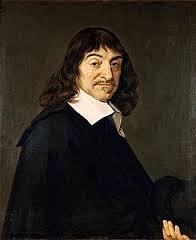
René Descartes
Recent News
- No News.
This is the home page of G. J. Mattey’s Philosophy 22, Philosophical Classics of the Modern Era, for Winter Quarter, 2021.
The Course
Philosophy 22 presents the most important works in the modern
era of philosophy, which spans roughly the early seventeenth century to the late eighteenth century. In this period, the earlier scholastic
philosophy of the middle ages was largely overtuned. This philosophical revolution went hand-in-hand with the emergence of modern science. The course will examine major classical works of the modern period.
General Catalog Course Description
Lecture—3 hours; discussion—1 hour. Survey of major figures in philosophy of the seventeenth and eighteenth centuries, with emphasis on Descartes, Hume, and Kant.
The Topic
Philosophy in Europe in the late Middle Ages centered mainly around the fusion of the teachings of Aristotle and those of the Roman Catholic Church. The recovery of ancient philosophical texts in the Renaissance and the fragmentation of Christiandom opened the way for new thinking. One of the first of the modern
philosophers was Descartes, who sought to combine Catholic thinking with the emerging new science, of which he was one of the founders. Descartes was a founder of the rationalist
movement, which emphasized the primacy of reason over the senses. In this he was followed by Spinoza and Leibniz. Locke was a founder of the empiricist
camp, which gave the senses the primary role in human knowledge. Locke’s empiricism quickly gave rise to Berkeley’s idealism and Hume’s skepticism. Kant held that both rationalism and empiricism are defective. He sought to remedy these defects by restricting human knowledge to appearances
and giving up claims to know things in themselves
, which would open the way to metaphysical knowledge.
